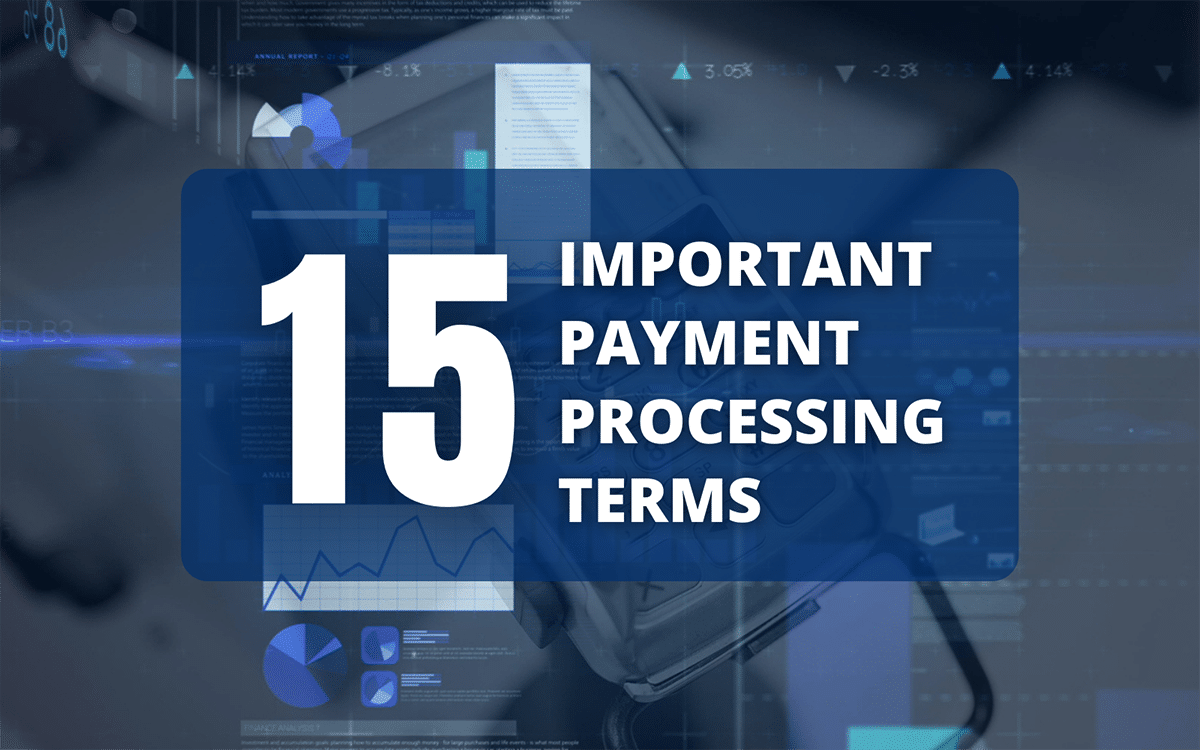Running a business has many challenges, and streamlining your payment processing is one of them. Sending and receiving payments is crucial for business operations, and there are several terminologies you need to know.
Over many years, terms have been refined as technology and infrastructure development and the increased complexities of payment processing. As technology evolves, new terms develop to keep up with changes. Business owners need to keep up with updates and new terms, whether they have the technical expertise or not.
Payment processing covers a wide spectrum of interests, and the multitude of terms and jargon used can be overwhelming to new business owners. In this article, we’ll discuss 15 important payment processing terms to help business owners navigate the sending and receiving of payments.
Payment Processing
1. API (Application Programming Interface)
API is a group of predefined procedures and methods. The interface provides all the information necessary to use data when interacting with external programs.
2. Authorization:
When processing a payment from a customer’s credit card, their bank received a notification. The notified bank that issued the card can either authorize or decline the transaction in a matter of seconds. When the transaction becomes approved, the card issuer sends a request to the merchant’s bank to make the payment.
3. Batch Processing:
Batch processing is when a merchant has to process multiple transactions simultaneously. To save time and costs, batch processing is automated to place a large batch of transactions into a single group.
4. Merchant Account:
A merchant account is a financial agreement between the business, the merchant provider (ISO), and acquiring bank to settle card payment transactions.
5. Recurring Billing:
Recurring billing takes product or service invoicing and automates it in an accounting system. Setting a billing timeline depends on business needs, either weekly, monthly, or yearly.
6. Underwriting:
Underwriting refers to the system used by a bank to estimate the risk level when deciding to approve or decline a merchant account for a business. A bank takes on the risk of guaranteeing payments to card issuers.
Pricing and Fees
7. Chargebacks
Chargebacks take place when a customer issues a complaint regarding a purchase with their card issuer. The card issuer will reverse the transaction and charge the merchant a fee for the reversal. Make sure to avoid a chargeback to sales ratio of 0.75% or less, or you can risk penalties or even have your merchant account canceled.
8. Hidden Fees:
Most contracts contain hidden fees, which add extra costs that can be negotiated out of a contract. Examples include support fees, batch fees, PCI-DSS non-compliance fees, and so forth.
9. Interchange Fees:
Also known as pass-through pricing, interchange fees come from a credit card network and payments are paid out by the issuing bank to the acquiring bank to fund the business. Card payment Associations such as Visa and Mastercard control the interchange rate and are fixed rates for both merchant and payment service providers. Interchange fees are standardized among all processing companies, but markups can differ widely.
10. Tiered Pricing:
Tiered pricing can have three rates:
- Qualified Rate: the lowest rates for card swipe or chip-read transactions.
- Mid-Qualified Rate: this includes manual key entered, telephone, or reward cards transactions.
- Non-Qualified Rate: the most expensive tier, with an average of 1.5% – 2.5% on top of the Qualified Rate.
Payment Security
11. Dynamic 3D Secure:
Dynamic 3D Secure is a technology used for securing payments through online platforms. The user usualy receives a text message with a unique one-time password when making online payments. This is mostly used in Europe and overseas but is becoming more prevalent in the U.S.
12. EMV Chips:
EMV Chips are found on debit and credit cards to reduce fraud risks associated with the magnetic strips.
13. Gateway:
A gateway connects the merchants with the payment processor. Like an online credit card machine. Gateways link transactions happening on a website to the payment processor and help maintain compliance standards and safety.
14. Tokenization:
Tokenization takes the primary account number and sends a different number referred to as a token. Tokens are a safety measure as hackers have no use for them and help prevent card number theft.
15. Virtual Payment Terminal (VPT):
VPT works for eCommerce, or phone orders and cards can be processed online. VPT’s are where merchants use batch processing when real-time entry is not necessary.
Seek Assistance from Finical
In the world of payment processing solutions, you will need a trusted expert to optimize your payment processing systems and workflow. Finical is a leading provider of payment processing services and merchant solutions to traditional and online businesses throughout North America.
At Finical, we provide customized solutions or countertop and online payment solutions to improve your payment systems and allow for scalability. Finical utilizes the most advanced security features for improved safety. With the overwhelming amount of jargon and industry standards to understand, Finical can simplify the process so you can spend more time on your core business functions.
Contact us and find out how we can assist your business’s payment processing needs.


